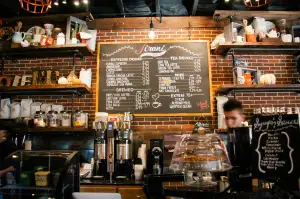Burger King Closures: The Latest News on Restaurant Shutdowns Shaking the Fast Food Industry

In recent months, Burger King has been making headlines with the announcement of store closures across the globe. The fast-food giant, known for its flame-grilled burgers and iconic Whopper sandwich, has been hit hard by the ongoing COVID-19 pandemic. As a result, they have been forced to make some tough decisions regarding their operations. This article will delve into the reasons behind these closures and explore the implications for both the company and its employees.
Impact of COVID-19 on Burger King
The COVID-19 pandemic has had a significant impact on Burger King, as it has on many other businesses in the fast food industry. The widespread closures and restrictions imposed to curb the spread of the virus have severely affected Burger King's operations. With dine-in services suspended and customers opting for takeout or delivery, Burger King experienced a sharp decline in sales. This decline, coupled with increased operational costs to ensure employee and customer safety, has put immense financial strain on the company. As a result, Burger King has been forced to make difficult decisions regarding store closures to mitigate these challenges and ensure its long-term sustainability.
Financial struggles leading to closures
Financial struggles have been a major factor leading to the closures of Burger King stores. The COVID-19 pandemic has hit the fast food industry hard, causing a significant decline in sales and revenue for many chains, including Burger King. With lockdowns and restrictions on dining-in, the company has faced a sharp decrease in customer traffic and overall demand. This, coupled with rising costs of operation and supply chain disruptions, has put immense financial pressure on Burger King, forcing them to make difficult decisions regarding store closures.
Reasons behind the decision to close stores
The decision to close Burger King stores can be attributed to several reasons. Firstly, the ongoing COVID-19 pandemic has significantly impacted the fast food industry, leading to a decline in sales and foot traffic. With restrictions on dining-in and reduced consumer spending, many fast food chains have struggled to maintain profitability.
Additionally, Burger King has been facing financial struggles even before the pandemic hit. Rising costs of ingredients, labor, and rent have put pressure on the company's bottom line. The closures are seen as a strategic move to cut losses and consolidate resources.
Moreover, changing consumer preferences and increased competition from other fast food chains have also played a role in the decision. Burger King has been facing challenges in keeping up with evolving trends and demands for healthier options. As a result, some underperforming locations are being closed to refocus efforts on more profitable markets.
Overall, the decision to close stores is a combination of external factors such as the pandemic and internal challenges faced by Burger King. It is part of their effort to streamline operations and adapt to an ever-changing market landscape.
Locations affected by the closures
Locations affected by the closures include several major cities across the country. In New York City, five Burger King locations have already shut their doors permanently. Additionally, stores in Los Angeles, Chicago, and Houston are among those that have been forced to close due to financial struggles. These closures have not only impacted urban areas but also smaller towns where Burger King was a popular fast-food option. The widespread nature of these closures highlights the significant challenges faced by the company in this difficult time.
Job losses and implications for employees
Job losses resulting from the closures have had significant implications for Burger King employees. Many dedicated workers have suddenly found themselves without employment, facing financial uncertainty during an already challenging time. The closure of stores means that these individuals will need to seek new job opportunities in a highly competitive market. This can be particularly difficult for those who have spent years working in the fast food industry and may not possess transferable skills. The sudden loss of income and stability can also have a detrimental impact on their personal lives and well-being. It is crucial for Burger King to provide support and resources to help affected employees navigate this difficult transition period.
Response from Burger King's management
In response to the closures, Burger King's management has expressed their deep regret for the impact on employees and communities. They have assured that they are working closely with affected employees to provide support and assistance during this difficult time. The company is also exploring opportunities to relocate some employees to other Burger King locations where possible. Additionally, Burger King's management has emphasized their commitment to adapting and evolving in order to meet the changing demands of the fast food industry. They are actively reviewing their business strategies and considering innovative approaches to remain competitive in the market. Despite the challenges faced, Burger King remains optimistic about the future and is determined to bounce back stronger than ever.
Future plans and strategies to overcome challenges
In response to the closures, Burger King's management is determined to navigate through these challenging times. They have outlined several strategies to overcome the hurdles ahead. Firstly, they plan to focus on enhancing their delivery and takeout services, recognizing the increasing demand for contactless options. Additionally, Burger King aims to invest in technology and automation to streamline operations and reduce costs. They also intend to introduce innovative menu items and promotions to attract customers back to their stores. By adapting their business model and embracing change, Burger King hopes to emerge stronger and more resilient in a rapidly evolving market.
In conclusion, Burger King is facing significant challenges in the fast food industry due to the impact of COVID-19 and financial struggles. However, the company is determined to adapt and survive in this changing market. Burger King's management has been proactive in implementing strategies to overcome these challenges and ensure its long-term sustainability. By focusing on digital innovation, expanding delivery services, and introducing new menu options, Burger King aims to meet evolving consumer demands and stay competitive. While store closures are unfortunate, they are part of a larger effort to streamline operations and allocate resources effectively. With careful planning and strategic decision-making, Burger King hopes to emerge stronger from this crisis and continue serving its loyal customers around the world.
Published: 05. 01. 2024
Category: Home



